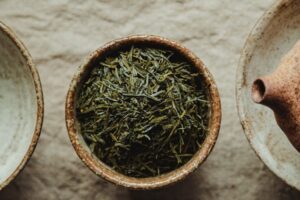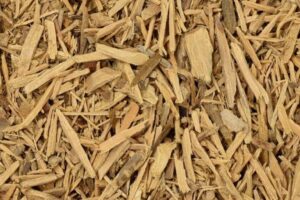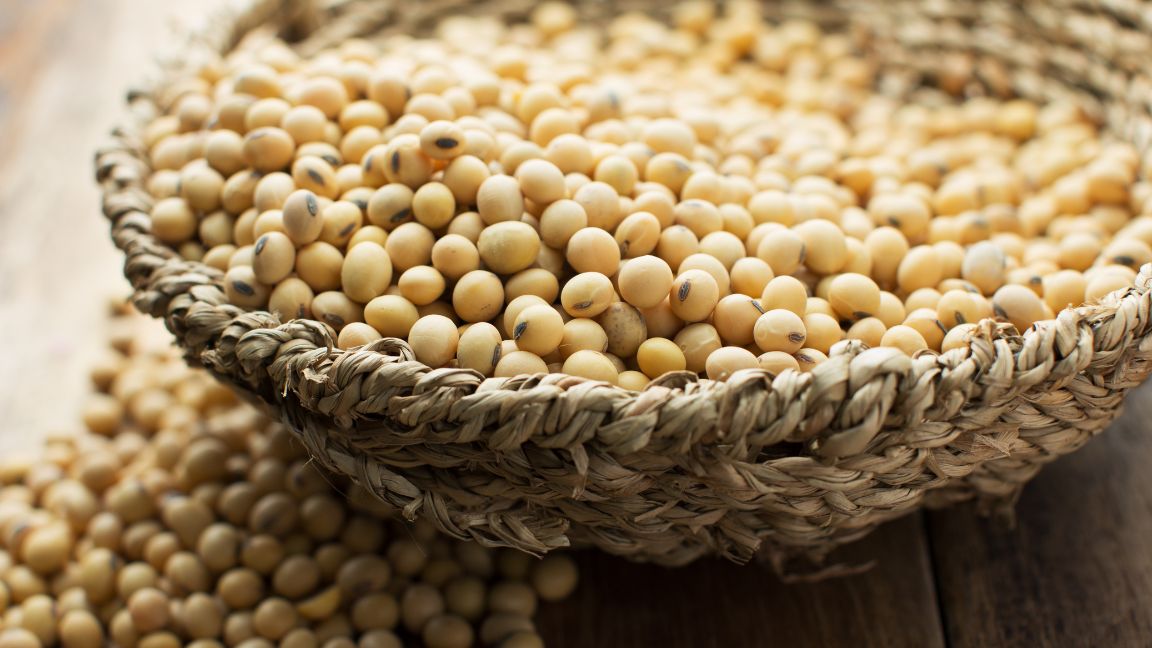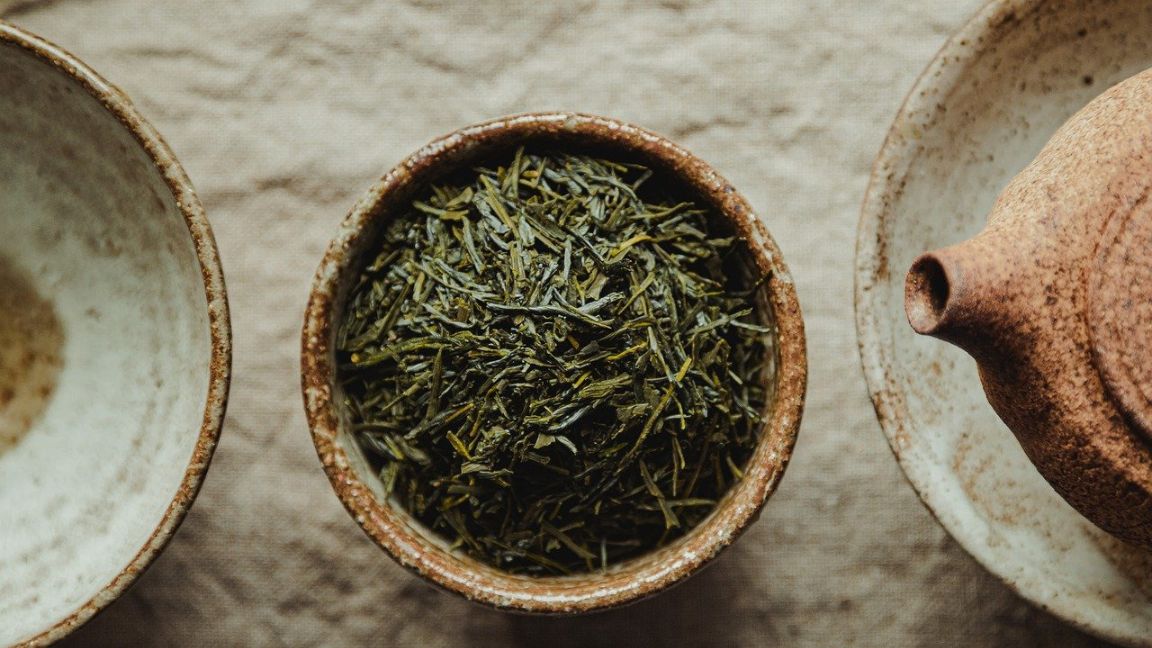Holistic Digest
- Soybean’s Power: An ancient food with modern benefits, soybean has shown potential in managing enlarged prostate and influencing testosterone levels.
- Evidence & Myths: While pivotal clinical trials vouch for soybean’s merits, it’s vital to differentiate facts from prevailing misconceptions.
- Beyond Prostate: Soybean aids in blood sugar regulation, promotes cardiovascular health, and may play a role in weight management and sleep regulation.
- Natural vs. Medication: Soybean offers a natural remedy edge, but contrasting it with other treatments is essential to make informed health decisions.
Table of Contents
- Unlocking Soybean’s Secrets: More than Just a Bean
- What is Soybean?
- Benefits of Soybean
- Scientific Studies and Evidence
- Side Effects of Soybean
- Psychological Impact of Prostate Issues and Soybean
- Inflammation, Cancer, Hormonal Imbalance, and Soybean
- Diabetes, Sugar Balance, Heart Health, Weight Loss & Sleep
- How Does Soybean Impact Testosterone Levels?
- Comparison with Other Prostate Health Treatments
- Incorporating Soybean in Diet
- Dosage Recommendations
- Interactions with Other Supplements and Medications
- The Power of Soybeans in a Nutshell
- Frequently Asked Questions
Unlocking Soybean’s Secrets: More than Just a Bean
Prostate health and testosterone: two factors integral to a man’s overall well-being. Yet, the delicate balance between them isn’t always easy to maintain. Enter soybeans – a seemingly ordinary food that might just be a puzzling surprise for many.
But, like any powerful tool, understanding its nuances is key. Let’s embark on this enlightening exploration together.
What is Soybean?
Description and history of the soybean
Soybeans, native to East Asia, have been a staple in diets for thousands of years. Originally cultivated in China, they’ve spread worldwide, revered for their rich protein content and versatility. Over time, they’ve evolved from a simple agricultural crop to a significant player in modern nutrition and health discussions.
Soybean, botanically known as Glycine max:
- Now grown worldwide, thanks to its resilience and versatile uses
- Produced from the leguminous soy plant, the beans undergo various processes to yield products like tofu, soy milk, and soy protein isolates
Soybean in Testosterone Management & Prostate Health
Soybeans contain isoflavones, compounds known for their potential influence on testosterone and estrogen balance.
Consuming soy has been linked with reduced risks of prostate issues in men, primarily due to these isoflavones. As such, their role in male hormonal health is often a focal point in nutritional discourse.
With a growing shift towards plant-based diets, soy’s popularity has surged in recent decades. Not only recognized for its nutritional merits, but soy is also touted for potential health benefits ranging from heart health to hormonal balance.
Benefits of Soybean
How Soybean can Influence Testosterone Levels
While some studies indicate a mild reduction in testosterone with high soy intake, others show minimal to no impact. However, it’s vital to acknowledge that individual responses may vary.
Over the years, many men have reported experiencing a reduction in prostate-related symptoms upon integrating more soy into their diets. While personal testimonies are not scientific evidence, they offer a human touch to the soy discussion, providing a practical insight into its potential benefits.
Table of Pros and Cons Table of Soybean:
| Pros | Cons | Sources |
|---|---|---|
| Soybean consumption has been associated with a reduced risk of prostate cancer in some studies | Soybean may cause digestive discomfort or allergies for some individuals when consumed in excessive amounts | 1, 2, 5 |
| Soy isoflavones found in soybean may act as weak estrogens and exert a protective effect against the development of prostate cancer | Soy supplements should only be taken under the guidance of a healthcare provider | 2, 5, 6 |
| Soybean is a rich source of protein which can be beneficial for muscle health and recovery, and it contains all the essential amino acids | Soy/isoflavone supplementation did not positively change PSA values of healthy subjects or patients with BPH and did not change sex hormone levels | 3 |
| Soybean may help in weight management and blood sugar regulation | Soybean may not have a significant effect on PSA or sex hormones in healthy subjects or in patients with BPH or prostate cancer | 3 |
Chronic inflammation is a culprit behind many health issues. Soybeans, rich in anti-inflammatory compounds, can help combat this. Their antioxidant properties can reduce oxidative stress, possibly offering protection against certain chronic conditions.
Potent Supplements to Augment Soybean’s Efficacy Together
Soybeans, when taken in conjunction with certain supplements, can deliver enhanced benefits. For instance, the rich curcumin content in turmeric amplifies soy’s anti-inflammatory prowess.
Flaxseeds, loaded with omega-3 fatty acids and lignans, complement soybeans in bolstering heart health. Then there’s the potent antioxidant EGCG in green tea that, when combined with soy, might offer added protection against several cancers.
Not to be overlooked, omega-3 supplements are also a heart-healthy match for soybeans, and broccoli extract, brimming with sulforaphane, acts in tandem with soybean to detoxify the body.
Scientific Studies and Evidence
Soybeans for Men’s Health
Soybeans boast a rich profile of phytochemical compounds that have shown promise in supporting prostate health, affecting testosterone metabolism, and even exhibiting anti-cancer properties.
Table of Soybean’s Bioactive Powerhouse Components:
| Bioactive Components | Description | Potential Benefits | Sources |
|---|---|---|---|
| Isoflavones | A type of phytoestrogen that mimics the hormone estrogen. Compounds like genistein, daidzein, and glycitein have shown potential in prostate health and hormonal regulation | Prostate health, hormonal regulation | 1, 2, 5 |
| Saponins | Found in the outer layers of soybean, they possess antioxidant and immune-boosting properties which can help reduce prostate inflammation | Antioxidant, immune-boosting, reduce prostate inflammation | 5 |
| Phytic Acid | Acts as an antioxidant and may play a role in reducing the risks of several types of cancers, including prostate cancer | Antioxidant, reduce risk of several types of cancers including prostate cancer | 5 |
| Phytosterols | Plant-derived sterols that might help in lowering cholesterol levels and potentially aid in prostate health | Lower cholesterol levels, potentially aid in prostate health | 5 |
| Protein | Soybean is a rich source of protein which can be beneficial for muscle health and recovery, and it contains all the essential amino acids | Muscle health, recovery, contains all essential amino acids | 5 |
Together, these components make soybean a dynamic supplement for men concerned about prostate health and related conditions.
Current Research on Testosterone Lowering & Opposing Views
Over the years, numerous clinical trials have investigated soy’s health implications. A consensus highlights its cardiovascular benefits, potential in diabetes management, and possible protective effects against certain cancers.
As for testosterone and prostate health, results are more varied, necessitating further research.
There’s a common misconception that soy consumption leads to feminizing effects in men. However, the majority of scientific evidence refutes this.
While it’s essential to consume soy in moderation, like any food, labeling it as detrimental to male health is an oversimplification.
The debate surrounding soy and testosterone is ongoing. While some studies suggest a mild decline in testosterone levels with excessive soy consumption, others find negligible effects.
It’s essential to view these findings with an open mind, considering the broader spectrum of research and individual variability.
Side Effects of Soybean
Possible side effects
Like any food or supplement, soy isn’t free from potential side effects. In rare cases, excessive consumption can lead to digestive issues, headaches, or even allergic reactions. It’s always advisable to listen to one’s body and adjust intake accordingly.
Before making any significant dietary changes, especially with a specific health goal in mind, consulting a healthcare professional is paramount.
Overview of Side Effects of Supplement for Different Age Groups:
| Age Group | Possible Side Effects | Sources |
|---|---|---|
| Young Men | In rare cases, excessive consumption can lead to digestive issues, headaches, or even allergic reactions. It’s always advisable to listen to one’s body and adjust intake accordingly. | 1, 3, 6 |
| Men with Prostate Problems | Soybean may not have a significant effect on PSA or sex hormones in healthy subjects or in patients with BPH or prostate cancer. Soy supplements should only be taken under the guidance of a healthcare provider. | 2, 3, 5 |
| The Elderly | How one reacts to soy can be influenced by various factors such as age, genetics, or the severity of prostate issues. Lifestyle choices, like overall diet and physical activity levels, can modify how soy affects an individual. Someone with a balanced lifestyle might metabolize and utilize soy differently than someone with sedentary habits or a less balanced diet. | 1, 3, 4, 6 |
Age, Genetics, Lifestyle, Severity of Prostate Issues & Soy
How one reacts to soy can be influenced by various factors. Genetics can dictate soy metabolism rates, age might influence hormonal reactions, and existing health conditions can determine soy’s overall effect on the body.
Lifestyle choices, like overall diet and physical activity levels, can modify how soy affects an individual. Someone with a balanced lifestyle might metabolize and utilize soy differently than someone with sedentary habits or a less balanced diet.
Psychological Impact of Prostate Issues and Soybean
Mental Strains of Prostate Problems Related to Testosterone
The mental toll of prostate issues can’t be overstated. Men often grapple with anxiety, stress, and depression— due to the physiological challenges presented by conditions like BPH or prostate cancer.
Testosterone, the primary male hormone, plays a significant role in these prostate issues…, impacting both physical health and mental well-being.
Beyond their nutritional prowess, soybeans contain certain compounds that could potentially support mental health. Isoflavones, found in soybeans, have shown promise in moderating stress responses and promoting a balanced mood.
Integrating soy-based foods into one’s diet might not only benefit prostate health but could also act as a buffer against the mental strains associated with these conditions.
Inflammation, Cancer, Hormonal Imbalance, and Soybean
Soybeans pack a punch with their rich isoflavone content – compounds that have been linked to reduced inflammation and potential anti-cancer effects. Preliminary studies suggest that these isoflavones may inhibit tumor growth—especially in the context of prostate cancer.
The isoflavones in soybeans might work to suppress the growth of cancer cells – slowing the disease’s spread and offering men a dietary strategy… to potentially complement their medical treatments.
Hormonal balance is crucial for overall health. Soybeans contain compounds that might mimic the effects of estrogen, a female hormone. While this might raise eyebrows, moderate soy consumption could offer a natural way to balance testosterone levels, proving beneficial for men dealing with prostate issues tied to hormonal imbalances.
Supplements for Reducing Inflammation
Addressing inflammation naturally is a common goal for many, and alongside soybeans, there are notable supplements to consider. Fish oil, with its abundant omega-3 fatty acids, stands out as a strong anti-inflammatory agent.

Similarly, the ancient remedy of white willow bark, often referred to as “Nature’s Aspirin”, has been a favorite for centuries. Ginger, with its warming spice, is not just for taste; it’s celebrated for its remarkable anti-inflammatory and antioxidant attributes.
Diabetes, Sugar Balance, Heart Health, Weight Loss & Sleep
Soybean’s Attributes for Blood Sugar Regulation and Diabetes
Diabetes and blood sugar imbalances affect millions. Soybeans, with their high protein and fiber content— can be an ally in this battle. Consuming soy can lead to steadier blood sugar levels… offering potential benefits for those with diabetes or at risk of developing it.
Heart health is paramount. Soybeans, rich in unsaturated fats and devoid of cholesterol, can potentially promote a healthier heart. Regular consumption might reduce bad cholesterol levels, a significant risk factor for heart diseases.
Sleep and weight management are interlinked, and soybeans might play a role in both.
The amino acid tryptophan, found in soybeans, is a precursor to serotonin— a neurotransmitter essential for sleep regulation.
Additionally, the protein and fiber content in soybeans can promote satiety – potentially aiding in weight loss endeavors.
When it comes to balancing blood sugar, soybeans have some reliable companions. Cinnamon, for instance, not only sweetens your dishes but might also hone insulin sensitivity. Berberine is another silent warrior in this regard, known to play a role in lowering blood sugar levels.
Add to this mix alpha-lipoic acid, which not only betters insulin sensitivity but also tends to symptoms of nerve damage in diabetics.
Bitter melon and magnesium both contribute uniquely – the former mimicking insulin-like compounds and the latter ensuring that no insulin resistance is due to its deficiency.
For those restless nights, consider melatonin, our body’s natural sleep-signaling hormone. Other time-tested remedies include valerian root, which can hasten your journey to dreamland, and the calming aroma of lavender. If you’re fond of sipping teas before bedtime, chamomile and passionflower teas might be your nighttime allies, both known to foster relaxation.

As for weight management, the chlorogenic acid in green coffee bean extract could be your ally in shedding those extra pounds. Glucomannan, a unique fiber, absorbs water, making you feel full and aiding in weight loss. Lastly, conjugated linoleic acid or CLA might just be the fat-burning assistant you were looking for.
How Does Soybean Impact Testosterone Levels?
The relationship between soybeans and testosterone is intricate. Soybeans contain phytoestrogens—compounds that can mimic the effects of estrogen in the body.
This can lead to a perceived reduction in testosterone, though it’s essential to understand that it doesn’t necessarily lower testosterone levels – but might modulate its effects.
Several studies have delved into the effects of soy on testosterone levels. While results vary, many studies suggest that moderate soy consumption doesn’t drastically reduce testosterone levels.
However, high amounts might have a more pronounced effect, underlining the importance of balanced consumption.
Soybeans can be a tool in the arsenal against prostate issues related to testosterone.
By potentially modulating the effects of testosterone, soybeans might offer men a dietary strategy to manage symptoms and improve overall well-being. However, as with any dietary change, it’s essential to consult with healthcare professionals to tailor approaches to individual needs.
Balancing testosterone is an art, and soybean is not the sole player in this field. Fenugreek, beyond its culinary applications, has shown potential in boosting testosterone levels.
Essential nutrients like vitamin D and zinc play their part too – a deficiency in the former can sink testosterone levels, while the latter is a cornerstone for testosterone production. Delving into herbal wonders, Tongkat Ali can be of assistance, especially for those men who are deficient.
Rounding off this list is D-Aspartic Acid, recognized for its ability to give short-term testosterone production a nudge.
Comparison with Other Prostate Health Treatments
In recent times, many men suffering from prostate-related ailments:
- Have been directed towards medications like alpha-blockers, 5-alpha-reductase inhibitors, or even surgical interventions
- While these can be effective, they sometimes come with side effects like dizziness, fatigue, or even impotence
Soybean, on the other hand, serves as a natural remedy, rich in isoflavones that can help maintain prostate health and regulate testosterone without such harsh side effects.
Soybeans stand out as a dietary solution because they not only address prostate health but also offer additional benefits like weight loss, balancing blood sugar, and enhancing cardiovascular health. Unlike certain medications which can negatively impact other bodily functions, soybeans promote holistic health.
Furthermore, as a plant-based food, soybeans are easily accessible, making them both a cost-effective and holistic approach for many.
Incorporating Soybean in Diet
Soybeans come in various forms, from edamame (young soybeans) often enjoyed in Japanese cuisine, to tofu, tempeh, and soy milk. These versatile beans can easily be integrated into salads, soups, and even desserts.
With their mild taste, they often absorb flavors from other foods, making them a great addition to diverse meals.
To enhance the benefits of soybeans, consider pairing them with foods rich in antioxidants like tomatoes or green tea.
These combinations not only taste great but also pack a punch in terms of health benefits. For instance, lycopene from tomatoes when combined with soy can amplify the protective effects on the prostate.
While soybeans are a commendable dietary addition, it’s worth noting that individual results might vary. In comparison to certain drugs which show faster symptom relief, soybeans might take longer to exhibit noticeable benefits.
However, their holistic health advantages make them an excellent long-term dietary choice.
Exploring prostate health supplements reveals a range that parallels soybean’s benefits. Saw palmetto, for instance, has garnered recognition for its positive influence on prostate well-being.
Beta-sitosterol, a component in some plants, is praised for improving urinary flow. Pygeum offers a solution for those grappling with prostate inflammation.
Meanwhile, stinging nettle aids with the urinary symptoms associated with an enlarged prostate. Lastly, pumpkin seeds, beyond their snack-worthy status, come packed with antioxidants and omega-3s, making them a sound choice for prostate health.
Dosage Recommendations
While it’s always essential to consult with a healthcare provider, a general recommendation is to include about 25 grams of soy protein daily for prostate health benefits. This equates to roughly one cup of tofu or two cups of soy milk.
Proposing Dosages for Prostate Health and Testosterone Regulation:
| Dosage | Benefits | Resources | Supplement Endorsment |
|---|---|---|---|
| Low dose: As recommended by a healthcare professional | May help reduce prostate-specific antigen (PSA) concentrations in men with prostate cancer and increased cancer risk | 1 | Protoflow – Learn more – Watch video presentation |
| Moderate dose: As recommended by a healthcare professional | May help improve exercise and athletic performance | 2 | |
| High dose: As recommended by a healthcare professional | May help reduce the risk of developing prostate cancer or for treating prostate cancer | 3, 4, 5 | |
| Get Medical Advice | Before making any significant dietary changes, especially with a specific health goal in mind, consulting a healthcare professional is paramount. They can offer personalized advice, ensuring safe and effective inclusion of supplements in one’s regimen. | 1, 2, 3, 4, 5, 6 |
Children and teenagers can safely consume soy, but in moderation, as their bodies are still developing. For adults, the 25 grams daily recommendation holds. As for seniors, while soy remains beneficial, they should be mindful of any digestive sensitivities and adjust their intake accordingly.
Interactions with Other Supplements and Medications
While soybeans are generally safe, they might interact with certain medications like thyroid drugs or warfarin. Additionally, soy’s estrogenic properties might interfere with hormone-related therapies or conditions.
It’s not just about how much soy you consume, but how you incorporate it into a balanced diet. Relying solely on soybeans can lead to nutrient imbalances. Rotate between different protein sources and ensure a colorful plate to get the most out of your meals.
Remember, moderation is key. While soybeans are beneficial, excessive consumption might lead to potential issues like thyroid imbalances.
Make it a habit to regularly check in with your healthcare provider to ensure you’re on the right track.
The Power of Soybeans in a Nutshell
After diving deep into the world of soybeans, it’s undeniable that they offer potential benefits for men’s prostate health and testosterone balance.
But, as with anything, it’s essential to consume soybeans wisely and always keep an eye on emerging research. Before making any drastic changes to your diet, especially when dealing with sensitive topics like prostate health, always consult your doctor.
I’m dedicated to staying updated and bringing you the latest findings as they come. Remember, balance is the key to a healthier life and soybeans might just be a part of that puzzle.
Frequently Asked Questions
What does soybean do for the prostate?
Soybean has potential benefits in managing symptoms of an enlarged prostate, mainly due to its anti-inflammatory attributes.
Is daily soybean consumption safe for men?
Yes, daily soybean consumption is generally safe for most men. However, discussing with a healthcare professional is recommended to tailor it to individual needs.
How does soybean impact testosterone levels?
Soybean can influence testosterone levels, mainly because of its phytochemical components. The biological pathways suggest a balancing effect on testosterone with regular soybean consumption.
Can soybean really help with weight loss?
Indeed, soybean has attributes beneficial for weight management, as its nutrient profile can aid in regulating metabolism and appetite.
Does soybean offer cardiovascular benefits?
Soybean has implications for cardiovascular health, thanks to its potential to regulate blood sugar and its influence on heart-friendly cholesterol levels.
Are there any risks in combining soybean with other supplements?
Yes, potential interactions between soybeans and other substances exist. It’s vital to be informed and consult with a healthcare professional for guided advice on sustainable consumption.
How should I incorporate soybean into my diet?
Incorporate natural sources and variations of soybean, such as tofu, tempeh, or soy milk. Consider its synergy with other herbs, supplements, or foods for maximum efficacy.














